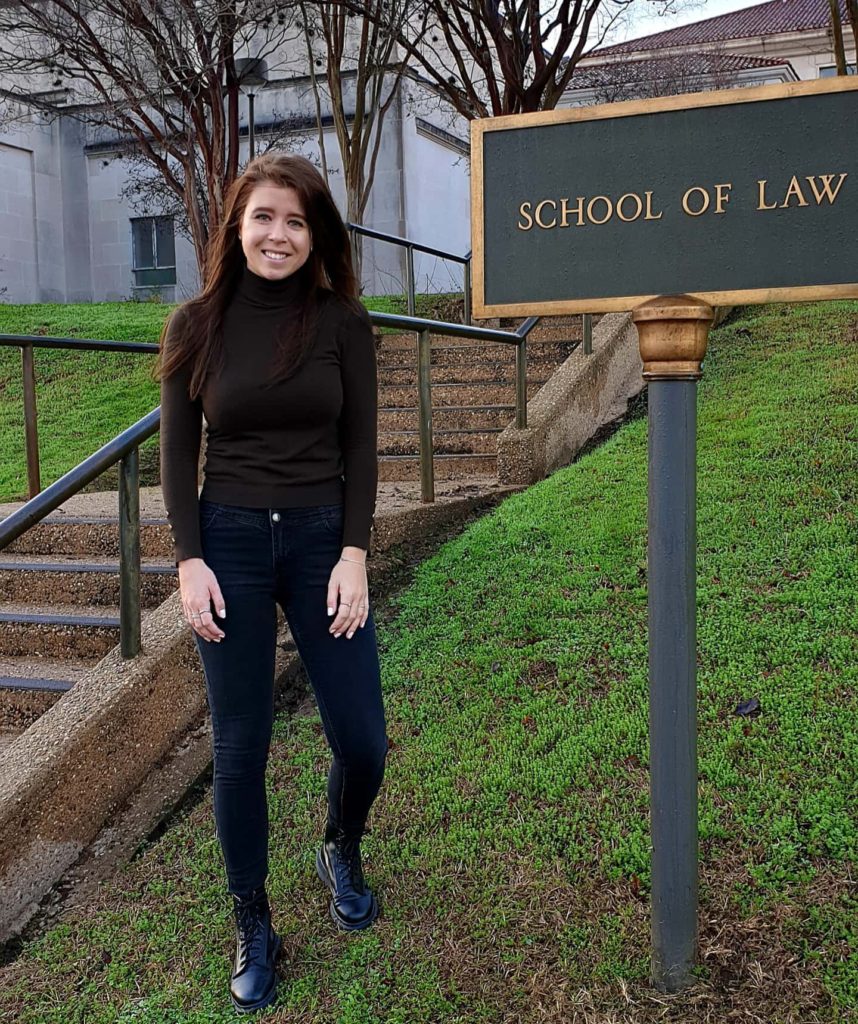As part of its monthly Research Fellow Spotlight, the Institute for Transnational Law sat down with Merel Pontier on January 24, 2020 to learn about her research interests in capital punishment. In addition to serving as a 2019-2020 Research Fellow in the Institute for Transnational Law at The University of Texas School of Law, Ms. Pontier, who is from the Netherlands, is also pursuing a LL.M. (Master of Laws) in U.S. Law for Foreign Lawyers at The University of Texas School of Law. Below is a transcription of the interview.
Please tell us about your research interests.
My research is related to capital punishment in the state of Texas. Capital punishment has interested me for many years now and was the main reason I came to Texas t0 study at The University of Texas School of Law. It is actually a very good friend of mine on Texas’ death row who has motivated, encouraged, and inspired me to come to Texas and learn everything there is to know about capital punishment so I can hopefully help him and others on Texas’ death row after I complete my LL.M.
What has your journey been to this point?
My interest in the American criminal justice system started early on. I studied at and graduated from the Erasmus University School of Law in the Netherlands. During my bachelor’s degree, seven years ago, I did an internship at a law firm in New York. That is when I started dreaming about one day becoming a criminal defense attorney in the United States. During my master’s degree at the same university, four years ago, I did another internship at a law firm in Louisiana. That firm exclusively represents prisoners on death row. That internship made me realize that people on death row need legal help the most. In the meantime, I had become friends with a Texas death-sentenced prisoner. That friendship has impacted my life in more ways than I could have ever imagined. After graduating in 2016, I started working for the Prosecutions Office in the Netherlands. Although that work was great, I wanted to do so much more for my friend on Texas’ death row. I decided to follow my dream; I came to UT and I will take the bar exam in July 2020 after completing my LL.M. It’s the best decision I ever made!
Can you speak of any challenges that you have had to overcome?
Moving to a different country, not being able to speak your own language, leaving friends and family behind, quitting a great job, making new friends, starting a new graduate program, and stepping into the unknown is of course a major challenge in itself. Even though this is the fourth time for me to live abroad, these challenges remain. Now that I am five months in, I can say this has definitely been the best decision I have ever made, despite everything I had to leave behind.
What advice would you give to your younger self?
I am extremely grateful and happy with where I am in life right now. Therefore, I don’t think there is any advice I would give to my younger self. I would not have done anything differently even if I could. I have always done what I thought was best and have never chosen the regular path, but have always followed my dreams. That is exactly what I encourage everyone to do.
What lessons did you learn from your own research, which have shaped your way of thinking?
My research, unfortunately, confirms what I already thought—most death penalty states in the United States automatically place their death sentenced prisoners in solitary confinement. Because I was given the opportunity to conduct this research for the Institute for Transnational Law, I have learned a great deal about the American way of writing and conducting research. A year ago, I would never thought I would be able to write a paper like this about a legal system that is so different from my own country. But here we are, a year later, and I am doing it. Although I could not have done it without the amazing guidance and help of Professor Fielder and Director Mauricio Pajón!
This interview was conducted by Dr. Mauricio Pajón, Program Director, Institute for Transnational Law.

